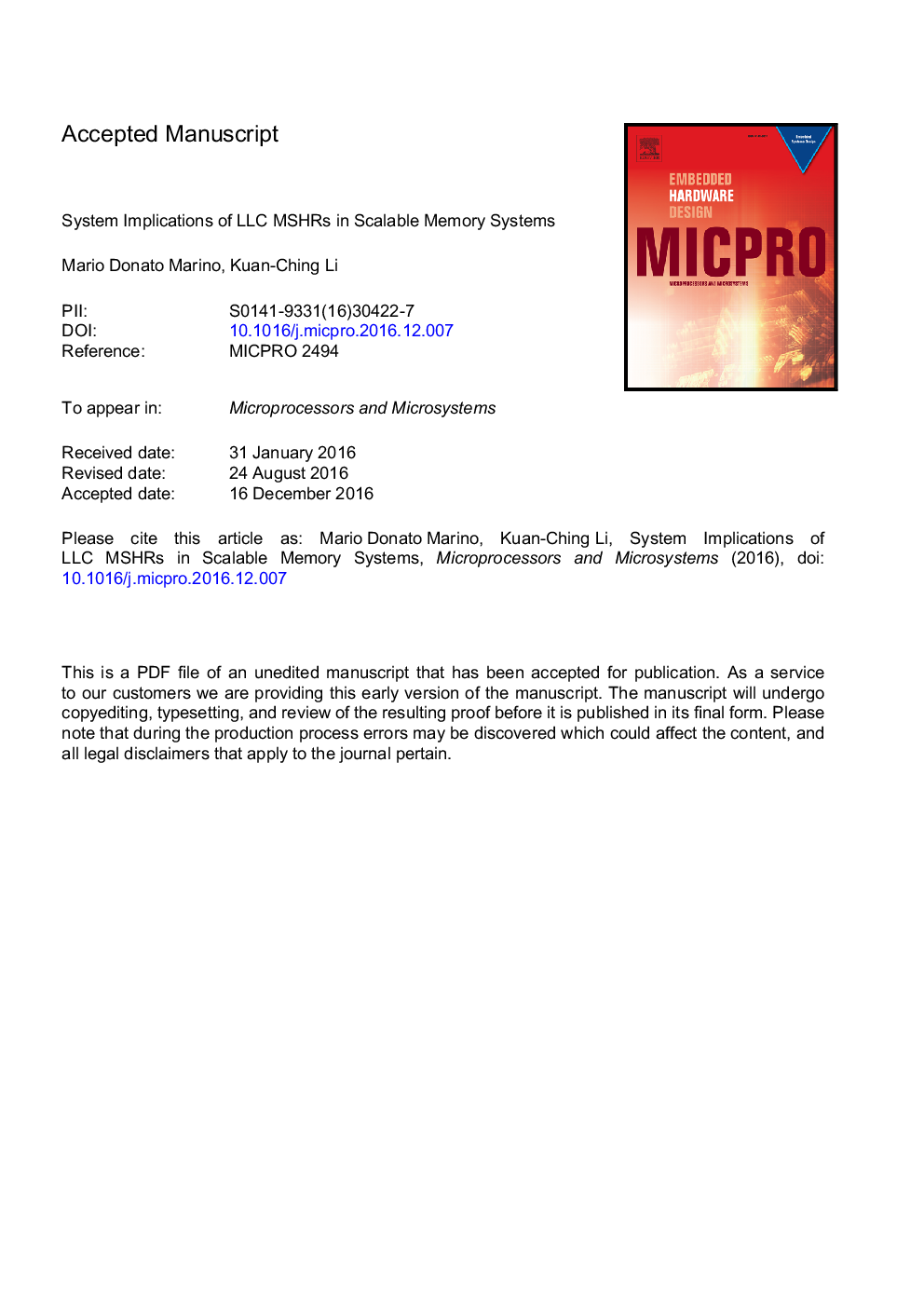| Article ID | Journal | Published Year | Pages | File Type |
|---|---|---|---|---|
| 4956660 | Microprocessors and Microsystems | 2017 | 15 Pages |
Abstract
By exploring the scalability of memory controllers (MCs) and ranks in scalable memory systems, larger degrees of memory bandwidth are offered when scaling cores in traditional multicores and embedded systems, and the ratio computation versus memory width - expressed as ratio between the number of cores and MCs - favors the former in detriment to the latter. In scalable memory systems, this ratio tends to balance the number of cores and MCs. Furthermore, since each core has their Last Level Cache (LLC) strongly subject to the number of Miss Status Holding Registers (MSHRs) present, which retain information on all outstanding misses of a specific cache line, it is fundamental to evaluate the impact of these elements in scalable memory systems. Experimental results show that, as reducing the number of MSHRs, memory bandwidth levels are reduced by about 64% and rank energy-per-bit levels are increased of about 36% for different patterns.
Related Topics
Physical Sciences and Engineering
Computer Science
Computer Networks and Communications
Authors
Mario Donato Marino, Kuan-Ching Li,
